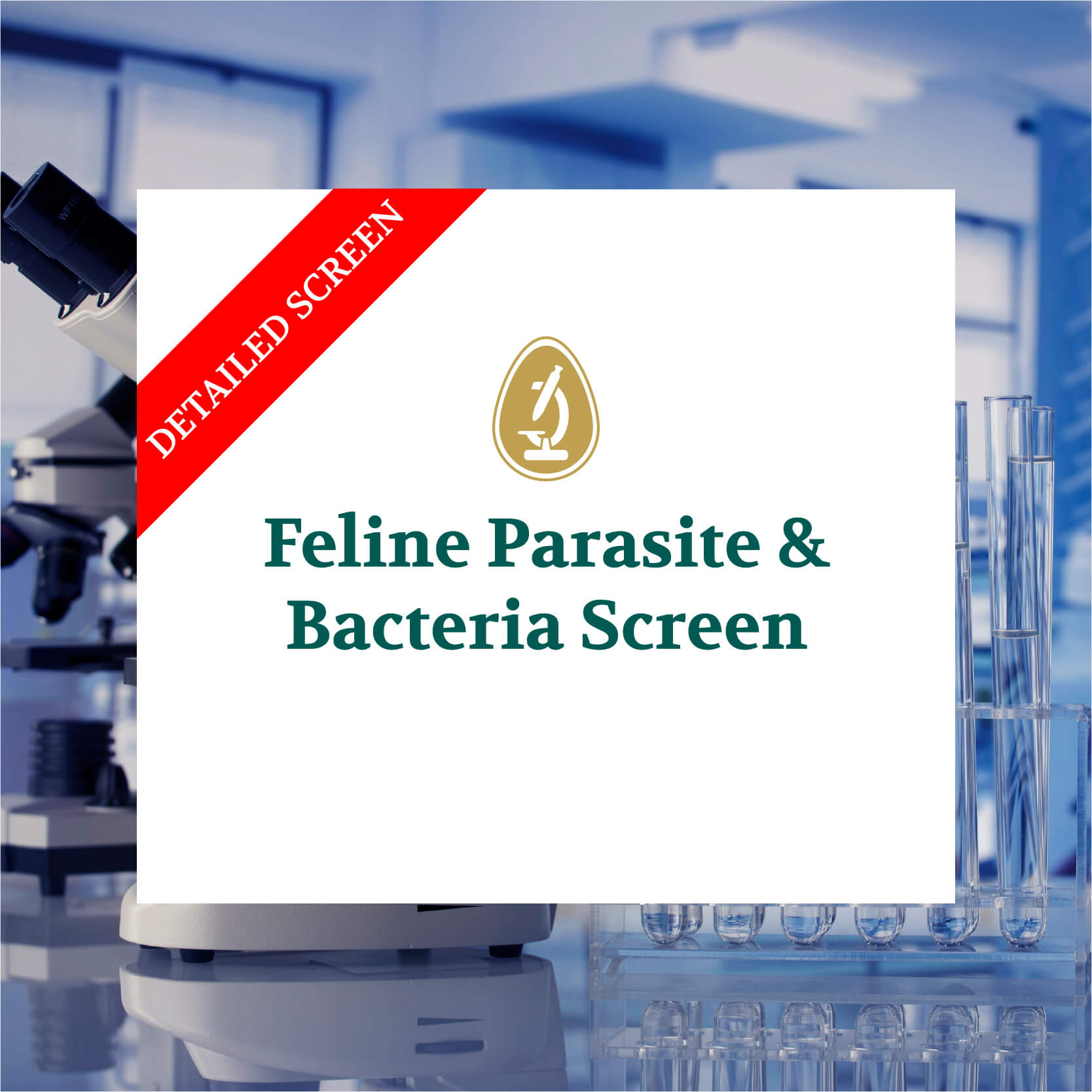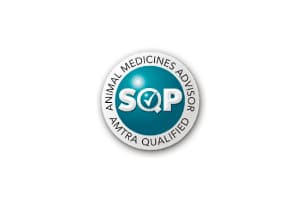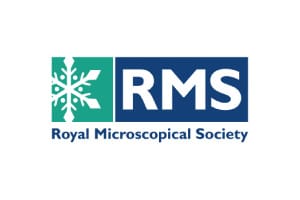
Feline Parasite and Bacteria Screen
£189.60 per test
Huge savings compared to buying screens separately
- Parasite screen: Targets a comprehensive range of gastrointestinal parasites including roundworms, hookworms, whipworms, some protozoa, and tapeworms.
- Lungworm: Our lungworm screen detects the 2 species currently known to be present in the UK.
- Giardia: Utilising immunochromatographic techniques, this test targets specific antigens to detect the presence of giardia antigens.
- Tritrichomonas foetus using Polymerase Chain Reaction (PCR) testing methods.
- Toxoplasma gondii using qPCR testing methods.
- Bacterial Pathogens: identification of Campylobacter and Salmonella using qPCR testing methods.
This Feline Intestinal Worms and Bacteria screen has a use by date of at least 6 weeks from point of order and it must be returned to the lab on or any time before the use by date.
Turnaround times
- Worm egg and digestion screen: Same working day
- Giardia and Cryptosporidium: Same working day
- Lungworm screen: Following working day
- Salmonella, Campylobacter, Tritrichomonas foetus and Toxoplasma gondii qPCR: Up to 5 working days
Order before 3pm Monday-Friday for same day dispatch, which we send on a 24 hour service. All orders over £40 and all subscriptions qualify for free delivery.
If your screen is urgent and you would prefer to send a sample directly to the lab, please contact us and we will give you a Unique Lab Reference number and help you with what to do.
£189.60 per test
Related tests
-
Combined Pack – Worm Count Test & Lungworm Test Kit
£34.90 – £324.00 Select options This product has multiple variants. The options may be chosen on the product page -
Triple Pack – Worm Count, Lungworm & Giardia Test for Dogs and Cats
£58.90 – £279.00 Select options This product has multiple variants. The options may be chosen on the product page -
Giardia Test for Dogs and Cats (PCR)
£70.20 Add to basket -
Campylobacter Test (PCR)
£70.20 Add to basket -
Salmonella Test (PCR)
£70.20 Add to basket
Further information
A Feline Parasite and Bacteria Screen offers excellent value for money. This car parasite screen conveniently and economically allows you to undertake the following tests.
- Gastrointestinal Screen: This parasite screen targets a comprehensive spectrum of gastrointestinal parasites including roundworms, hookworms, whipworms, some protozoa, and tapeworms.
- Lungworm: Our lungworm screen detects the 2 species currently known to be present in the UK.
- Giardia: Utilising immunochromatographic techniques, this test targets specific antigens to detect the presence of giardia antigens.
- Tritrichomonas foetus using Polymerase Chain Reaction (PCR) testing methods.
- Toxoplasma gondii using PCR testing methods.
- Bacterial Pathogens: identification of campylobacter and salmonella using PCR testing methods.
The kits come with full instructions of the requirements, which must be read and followed exactly.
Report 1 – Worm Count Test
Tested and issued the same working day the sample arrives into the lab. The worm egg screen will identify and quantify of all species present within the family groups of:
- Ascarids
- Hookworms
- Whipworms
- Threadworms
In addition, as standard, this screen also reports on:
- All species of cestodes (Tapeworms*)
- Protozoa – Coccidia
*Tapeworms are very intermittent shedders and do not always show on a worm egg screen. If present in the sample, the species will be identified. As they may not have been present when the sample was taken, it is advisable to use regular tapeworm specific treatment.
Report 2 – Giardia & Cryptosporidium Test
Tested and issued the same working day the sample arrives into the lab. Using antigen technology, a separate report will be provided detailing the presence or absence of giardia and cryptosporidium antigens.
Report 3 – Lungworm Test
The test is commenced the same working day that it arrives into the lab. As it is an extended screen, it runs overnight and the results are issued the following working day. The report will include all species of lungworm currently present in the UK associated with cats.
If your cat has been outside the UK, please contact us.
Report 4 – Campylobacter, salmonella, Tritrichomonas foetus and Toxoplasma gondii tests
Testing can take up to 5 working days using highly accurate PCR testing techniques. A separate report will be provided detailing the results.
Note
This test pack comes with complete instructions for each portion of the test. Please note that it requires two one day and a three-day sample. Please take the samples from the first motion of the day and store the lungworm samples at room temperature whilst collecting.
Cryptosporidium is a microscopic protozoan parasite that causes the gastrointestinal disease cryptosporidiosis, which can infect both animals and humans (zoonosis). This parasite is highly resilient and can survive in various environmental conditions, making it a common contaminant in water and food sources. Infection occurs when animals or humans ingest the parasite, often through contaminated water, food, or contact with infected faecal matter.
Typical symptoms in animals infected with Cryptosporidium may include persistent watery diarrhoea, which can be particularly severe in young or immunocompromised animals.
Giardia is a protozoan parasite that resides in the gastrointestinal tract and is often contracted through the consumption of contaminated water. This parasite is highly contagious among pets and can also be transmitted to humans. In many cases cats may carry giardia without displaying any symptoms, yet they can still spread the infection to other animals and potentially to humans. If your dog or cat does exhibit symptoms, these may include intermittent vomiting, diarrhoea, as well as lethargy and weight loss.
Campylobacter is a genus of bacteria that is a common cause of bacterial gastroenteritis in animals. These spiral-shaped, gram-negative bacteria are often found in the intestines of animals. Infection typically occurs through the consumption of contaminated food and water, such as undercooked meat and can also be spread through contact with infected animals or their faeces. Symptoms include diarrhoea (often bloody), abdominal pain, fever, nausea, and vomiting, usually appearing 2-5 days after exposure and lasting about a week. Animals can carry the bacteria asymptomatically.
Salmonella is a genus of bacteria that is a leading cause of foodborne illness worldwide. These gram-negative, rod-shaped bacteria are commonly found in the intestines of animals and humans. Infection usually occurs through the ingestion of contaminated food and water, particularly raw or undercooked meat, poultry, eggs, and unpasteurized dairy products. Symptoms of Salmonella infection, known as salmonellosis, typically include diarrhoea, abdominal cramps, fever, nausea, and vomiting, appearing 6 hours to 6 days after exposure.
Tritrichomonas foetus is a protozoan parasite that infects the intestinal tract of cats, leading primarily to chronic, malodorous diarrhoea. This infection is most common in multi-cat environments such as shelters, catteries, or households with multiple cats. The parasite spreads through the faecal-oral route, often via shared litter boxes or grooming behaviours. Infected cats may also exhibit signs of inflammation around the anus due to persistent irritation.
Toxoplasma gondii is a protozoan parasite that causes toxoplasmosis, an infection commonly found in animals. This single-celled organism has a complex life cycle, with cats as the definitive hosts and various warm-blooded animals as intermediate hosts. Toxoplasma gondii completes its sexual reproduction in the intestines of cats, which then shed oocysts in their faeces. Other animals can become infected by ingesting oocysts from contaminated soil, water, or food, or by consuming undercooked or raw meat containing tissue cysts. Infected animals often show mild symptoms or none at all, but in some cases, the infection can lead to severe health issues, particularly in young or immunocompromised animals. Symptoms in infected animals may include lethargy, loss of appetite, weight loss, fever, and respiratory issues.
There is a ‘use by date’ on each kit which MUST be adhered to. The use by date will be at least 6 months from date of order. Unfortunately, no refunds can be given for late submission or unused tests however please contact the office to discuss options if this occurs.
If undertaking a retest post treatment, we recommend waiting at least 3 weeks before retesting following completion of the course of treatment.
This kit has been designed to provide ultimate sample protection during transit, whilst also minimising our environmental impact as far as practically possible. The kit includes:
- One recyclable padded envelope, made with 60% recycled material
- Free tracked return 24hr postage to get the samples to the lab
- One white paper laboratory request form (worm count test) with instruction sheet
- One red paper laboratory request form (lungworm test) with instruction sheet
- One blue paper laboratory request form with instruction sheet
- Three recyclable sample collection boxes in resealable write-on panelled bags
- Two biodegradable additional sealable bags
- One biodegradable natural wood sampling spoon
- One protective disposable glove
A Feline Parasite and Bacteria Screen offers excellent value for money. This car parasite screen conveniently and economically allows you to undertake the following tests.
- Gastrointestinal Screen: This parasite screen targets a comprehensive spectrum of gastrointestinal parasites including roundworms, hookworms, whipworms, some protozoa, and tapeworms.
- Lungworm: Our lungworm screen detects the 2 species currently known to be present in the UK.
- Giardia: Utilising immunochromatographic techniques, this test targets specific antigens to detect the presence of giardia antigens.
- Tritrichomonas foetus using Polymerase Chain Reaction (PCR) testing methods.
- Toxoplasma gondii using PCR testing methods.
- Bacterial Pathogens: identification of campylobacter and salmonella using PCR testing methods.
The kits come with full instructions of the requirements, which must be read and followed exactly.
Report 1 – Worm Count Test
Tested and issued the same working day the sample arrives into the lab. The worm egg screen will identify and quantify of all species present within the family groups of:
- Ascarids
- Hookworms
- Whipworms
- Threadworms
In addition, as standard, this screen also reports on:
- All species of cestodes (Tapeworms*)
- Protozoa – Coccidia
*Tapeworms are very intermittent shedders and do not always show on a worm egg screen. If present in the sample, the species will be identified. As they may not have been present when the sample was taken, it is advisable to use regular tapeworm specific treatment.
Report 2 – Giardia & Cryptosporidium Test
Tested and issued the same working day the sample arrives into the lab. Using antigen technology, a separate report will be provided detailing the presence or absence of giardia and cryptosporidium antigens.
Report 3 – Lungworm Test
The test is commenced the same working day that it arrives into the lab. As it is an extended screen, it runs overnight and the results are issued the following working day. The report will include all species of lungworm currently present in the UK associated with cats.
If your cat has been outside the UK, please contact us.
Report 4 – Campylobacter, salmonella, Tritrichomonas foetus and Toxoplasma gondii tests
Testing can take up to 5 working days using highly accurate PCR testing techniques. A separate report will be provided detailing the results.
Note
This test pack comes with complete instructions for each portion of the test. Please note that it requires two one day and a three-day sample. Please take the samples from the first motion of the day and store the lungworm samples at room temperature whilst collecting.
Cryptosporidium is a microscopic protozoan parasite that causes the gastrointestinal disease cryptosporidiosis, which can infect both animals and humans (zoonosis). This parasite is highly resilient and can survive in various environmental conditions, making it a common contaminant in water and food sources. Infection occurs when animals or humans ingest the parasite, often through contaminated water, food, or contact with infected faecal matter.
Typical symptoms in animals infected with Cryptosporidium may include persistent watery diarrhoea, which can be particularly severe in young or immunocompromised animals.
Giardia is a protozoan parasite that resides in the gastrointestinal tract and is often contracted through the consumption of contaminated water. This parasite is highly contagious among pets and can also be transmitted to humans. In many cases cats may carry giardia without displaying any symptoms, yet they can still spread the infection to other animals and potentially to humans. If your dog or cat does exhibit symptoms, these may include intermittent vomiting, diarrhoea, as well as lethargy and weight loss.
Campylobacter is a genus of bacteria that is a common cause of bacterial gastroenteritis in animals. These spiral-shaped, gram-negative bacteria are often found in the intestines of animals. Infection typically occurs through the consumption of contaminated food and water, such as undercooked meat and can also be spread through contact with infected animals or their faeces. Symptoms include diarrhoea (often bloody), abdominal pain, fever, nausea, and vomiting, usually appearing 2-5 days after exposure and lasting about a week. Animals can carry the bacteria asymptomatically.
Salmonella is a genus of bacteria that is a leading cause of foodborne illness worldwide. These gram-negative, rod-shaped bacteria are commonly found in the intestines of animals and humans. Infection usually occurs through the ingestion of contaminated food and water, particularly raw or undercooked meat, poultry, eggs, and unpasteurized dairy products. Symptoms of Salmonella infection, known as salmonellosis, typically include diarrhoea, abdominal cramps, fever, nausea, and vomiting, appearing 6 hours to 6 days after exposure.
Tritrichomonas foetus is a protozoan parasite that infects the intestinal tract of cats, leading primarily to chronic, malodorous diarrhoea. This infection is most common in multi-cat environments such as shelters, catteries, or households with multiple cats. The parasite spreads through the faecal-oral route, often via shared litter boxes or grooming behaviours. Infected cats may also exhibit signs of inflammation around the anus due to persistent irritation.
Toxoplasma gondii is a protozoan parasite that causes toxoplasmosis, an infection commonly found in animals. This single-celled organism has a complex life cycle, with cats as the definitive hosts and various warm-blooded animals as intermediate hosts. Toxoplasma gondii completes its sexual reproduction in the intestines of cats, which then shed oocysts in their faeces. Other animals can become infected by ingesting oocysts from contaminated soil, water, or food, or by consuming undercooked or raw meat containing tissue cysts. Infected animals often show mild symptoms or none at all, but in some cases, the infection can lead to severe health issues, particularly in young or immunocompromised animals. Symptoms in infected animals may include lethargy, loss of appetite, weight loss, fever, and respiratory issues.
There is a ‘use by date’ on each kit which MUST be adhered to. The use by date will be at least 6 months from date of order. Unfortunately, no refunds can be given for late submission or unused tests however please contact the office to discuss options if this occurs.
If undertaking a retest post treatment, we recommend waiting at least 3 weeks before retesting following completion of the course of treatment.
This kit has been designed to provide ultimate sample protection during transit, whilst also minimising our environmental impact as far as practically possible. The kit includes:
- One recyclable padded envelope, made with 60% recycled material
- Free tracked return 24hr postage to get the samples to the lab
- One white paper laboratory request form (worm count test) with instruction sheet
- One red paper laboratory request form (lungworm test) with instruction sheet
- One blue paper laboratory request form with instruction sheet
- Three recyclable sample collection boxes in resealable write-on panelled bags
- Two biodegradable additional sealable bags
- One biodegradable natural wood sampling spoon
- One protective disposable glove
How does it work?
1. Choose andorder your kit
Select the screens you would like to run for your animal and we will post you a collection kit
2. Send us asample for testing
Collect your animals faecal sample and post it to us for testing in our laboratory
3. Receive yourresults via email
Free Registered Animal Medicines Advisor (RAMA) aftercare is available where required.
Why choose Wormcount.com?
Experienced &Dedicated Team
At Wormcount.com we are a caring, experienced and dedicated team. Our analysts have a combined experience of over 50 years.
Fast, Reliable & Friendly Service
We have earned the reputation of being fast, reliable and friendly and we believe the key to our first class service is first classcommunication.
Safe & SecureOnline Payments
We accept all major credit cards through our safe and secure payment gateway and also offer FREE shipping on all UK based orders.
Testimonials






